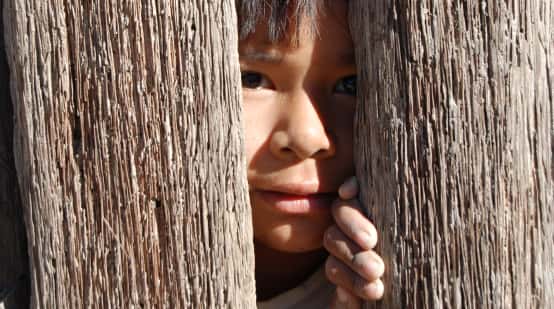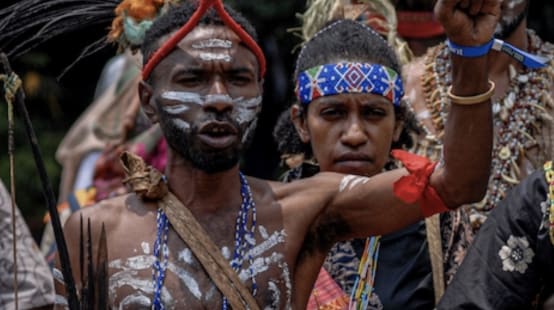Veracel destroys rainforests and arable land in favour of cheap paper
 Picture: Veracel Celulose
Picture: Veracel Celulose
Printing paper and paper towels, sales catalogues and handkerchiefs – many paper products are made from cellulose. Because the wordwide demand for these consumer goods is on the increase, the Veracel company intends to massively expand its eucalyptus plantations. And this is bad news for nature and local communities of the Brazilian region of Bahia. The organisation CEPEDES needs support in its campaign in order to preserve the rainforest and the much-needed farmland.
Call to action“”
The multinational company Veracel Fibria, owned by the Swedish-Finnish enterprise Stora Enso, is expanding. The company performance is scheduled to be doubled – from currently 1.2 to 2.5 million tons of cellulose per year. In Bahia, the base material for paper is obtained from eucalyptus wood. To date, the monocultures already cover nearly 120.000 hectares. If Veracel implements the plan, the plantations will double in size accordingly.
While the multinational companies reap huge profits, the local people suffer from the effects of cellulose production. The natives fear that the expansion of the plantations will cause more poison to be set free. Monoculture plantations are highly susceptible to diseases and pests. In order to secure the production process, large amounts of toxic pesticides like glyphosate and sulfuramide are employed. These chemicals endanger the regional environment and put people’s health at risk. The immense water consumption of the eucalyptus plantations poses another problem: For peasant farmers, water is scarce – which is an immediate threat to the local population’s food security.
While Veracel’s plantations proliferate, members of the indigenous Pataxó tribe and local peasant farmers take legal action to reclaim their land. They accuse the company of having unlawfully taken possession of the land, and they are afraid that the plantations ruin their agriculture.
For years, the Brazilian organisation CEPEDES has been supporting the population in southern Bahia in organising the resistance against Veracel and its expansion of plantations and factories.
Please sign the letter by CEPEDES to the Governor of Bahia and join the protest against the expansion of eucalyptus plantations.
LetterAn den Gouverneur von Bahia - Jaques Wagner
3ª Avenida, nº 390, Plataforma IV, 1º andar, CAB.
41.745-005 Salvador - Bahia
Dear Mr. Governor,
we send you this letter in solidarity with the environmental and human rights organisations of Bahia. We support CEPEDES and the local people who demand the approval for the construction of new pulp mills and for the expansion of eucalyptus monocultures received by Veracel Celulose S/A to be canceled.
Since we observe the repercussions of monoculture plantations in other parts of the world, we are aware of the negative effects of such economic projects. Our governments subsidise major projects like these with substantial amounts of money. However, there are alternative economic projects and local initiatives which would create more jobs and a sustainable income for the local population and which would be ecologically compatible.
In the case of Veracel and the company’s expansion plans, we present the following arguments that justify the cancellation of the approval for expansion:
- In elaborating the environmental impact assessment for the expansion of Veracel Celulose, the Bahian prosecution detected irregularities and unlawful acts. As a consequence, the prosecution has instituted criminal proceedings against Veracel, CEPEMAR (the company conducting the environmental impact assessment) and the Bahian government on July 20th, 2011. As of August 9th, the Court of Bahia has dismissed the authorisation process concerning Veracel’s project plans because of this.
- What is more, Veracel has already been the subject of several investigations and lawsuits. Repeatedly, the company has been prosecuted by the law enforcement authorities.
- Veracel has occupied fertile land to plant eucalyptus trees. As a result, the food security of the entire region is threatened.
- The plantations of Veracel require the employment of agrochemicals such as glyphosates and sulfuramides. These chemicals put people’s health and the environmental conditions at risk. The eucalyptus monocultures pose a threat to the survival of local communities and to biodiversity in southern Bahia, as the water quantity has deteriorated significantly ever since the plantations have been built.
- Already, the company has unlawfully taken possession of indigenous territory. It is paradoxical that Veracel is granted another 100.000 hectares, even though this land has been assigned to the indigenous Pataxó tribe by the authorities in charge. This act violates constitutional rights. The plantations compete with the local people who have populated the land and use it to produce food. The eucalyptus plantations cannot accomplish this social function sufficiently.
- According to local organisations and authorities, regional labour courts have handled up to 1000 legal actions and proceedings against Veracel so far.
- In addition, the pulp industry generates only few jobs in relation to its extreme territorial extension. In view of these facts, it is incomprehensible that the Brazilian Development Bank (BNDES) subsidises this project with public funds. The BNDES supported the last pulp mill with 1.43 billion Brazilian reais (about 900 million US dollars). Only 741 jobs were created. The investment would have been enough to provide ten thousand families with a piece of land and – by means of promoting traditional agriculture – with a secure source of income.
- In 2008, a study (“Silvicultura de Eucalipto no Sul e Extremo Sul da Bahia: Situação atual e perspectivas ambientais”) commissioned by the Bahian government amongst others concluded that social conflicts were already detectable. Additionally, the “social non-compatibility” of eucalyptus plantations in the region was stressed.
In many southern countries, people suffer from the expansion of plantations and paper mills. For the purpose of ruthless profit maximisation, the operating companies are solely and constantly searching for ever-cheaper locations. Paper production does not benefit the local people at all. The natives need support to develop socially acceptable and sustainable economic projects that are useful to their local community and that protect the environment.
Finally, we make an appeal to the government of the State of Bahia. The government should create a sustainable development plan that incorporates the needs of the local population in Bahia and that is consistent with the general standards for environmental protection.
Sincerely,













 Recent successes
Recent successes